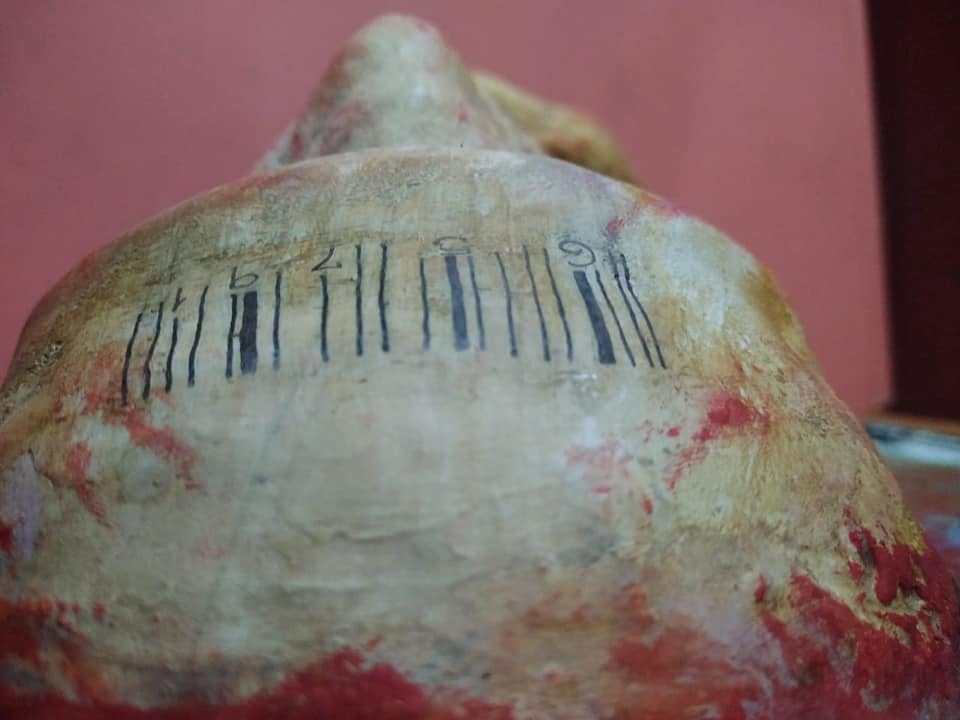Teacher training for the teaching of scientific thought in institutions of the municipalities of cárdenas, san cristóbal and pedro maría ureña, of the state of táchira, Venezuela
Main Article Content
Abstract
The present work aims to evaluate the training of teachers for the teaching of scientific thinking in children of the fifth and sixth grade of primary education belonging to institutions in the municipalities of Cárdenas, San Cristóbal and Pedro María Ureña in the State of Táchira of Venezuela; For this, the construct on teacher training guided towards the teaching of scientific thought will be examined and the training that teachers have for teaching scientific thought will be identified. The research was framed within the quantitative paradigm from the factual sciences, with a descriptive level and a non-experimental field design, the survey technique was applied through a questionnaire to fifteen teachers with closed questions of simple selection, validated by experts. For the statistical analysis, the Microsoft Excel program was used, the results were interpreted and the respective conclusions were obtained, among which the fact that there is limited teacher training regarding the teaching of scientific thought from the classroom stands out, although there is considerable openness that may allow such training to develop.
References
Carpintero, G. (2010). Una teoría anarquista del conocimiento. Claridades: revista de filosofía, 2(1), 24-35. https://dialnet.unirioja.es/servlet/articulo?codigo=6297524
Castro, A., Ramírez, R. (2013). Enseñanza de las Ciencias Naturales para el desarrollo de competencias científicas. Revista Amazonia, 2(3), 31-44. Florencia. Colombia.
Chamizo, J., Izquierdo, M. (2007). Evaluación de las competencias de pensamiento científico. Alambique. Didáctica de las ciencias experimentales, 51, 9-19. https://www.cad.unam.mx/programas/actuales/cursos_diplo/cursos/cursos_SEP_20 12/00/primaria/mat_particip_prim/arch_part_prim/S8P2.pdf
Daza, S., Quintanilla, M., Arrieta, J. (2011). La cultura de la ciencia: contribuciones para desarrollar competencias de pensamiento científico en un encuentro con la diversidad. Revista científica, (14), 97-111. http://revistas.udistrital.edu.co/ojs/index.php/revcie/article/view/3705
De Lella, C. (1999). I Seminario Taller sobre perfil del docente y estrategias de formación. Modelos y tendencias de la formación docente. Organización de Estados Iberoamericanos. Para la Educación, la Ciencia y la Cultura. Lima, Perú. https://www.oei.es/historico/cayetano.htm
Díaz, V. (2006). Formación docente, práctica pedagógica y saber pedagógico. Laurus, 12(Ext), 88-103. https://www.redalyc.org/pdf/761/76109906.pdf
Doménech, F. (2012). La enseñanza y el aprendizaje en la situación educativa. https://www3.uji.es/~-betoret/Instruccion/Aprendizaje%20y%20DPersonalidad /Curso%2012-33/Apuntes%20Tema%205%20La%20ensenanza%20y%20el%20 aprendizaje%20en%20la%20SE.pdf
Dunbar, K., & Fugelsang, J. (2005). Scientific thinking and reasoning. The Cambridge handbook of thinking and reasoning, 705-725. http://www.academia.edu/download/46261485/The_Cambridge_Handbook_of_Thinking_and_Reasoning.pdf#page=695Signature=5a6b9e79030bb213c9f-809d37749f80f0032cf6684c10f625badd74d394ed4e6#page=695
Furman, M. (8 de febrero de 2014). El pensamiento científico nos ayuda transformarnos en el país que queremos ser. Red Iberoamericana de comunicación y divulgación científica – IBERDIVULGA. https://www.oei.es/historico/ divulgacioncientifica/?Melina-Furman-El-pensamiento
Gallego, A., Castro, J., Rey, J. (2008). El pensamiento científico en los niños y las niñas: algunas consideraciones e implicaciones. Universidad Distrital Francisco José de Caldas, Bogotá, Colombia
MEMORIAS CIIEC, 22-29. http://www.cma ps.ucr.ac.cr/rid=1RXS8VTTV-1JVFJRL-3L8/pensamiento%20cientifico.pdf
García, C. (2011). Unidades didácticas como apoyo a la enseñanza de las ciencias naturales el caso de la dinámica de poblaciones en grado noveno. (Tesis para optar al magister en Enseñanza de las Ciencias exactas y naturales). Universidad Nacional de Colombia, Colombia.
Gonzáles, R., y Gonzáles, V. (2007). Diagnóstico de necesidades y estrategias de formación docente en las universidades. Revista Iberoamericana de Educación, 43(6), 6. https://rieoei.org/historico/deloslectores/1889Maura.pdf
Gopnik, A. (2012). Scientific thinking in young children: Theoretical advances, empirical research, and policy implications. Science, 337(6102), 1623-1627. https://pdfs.semanticscholar.org/622e/1bfecc-11c019ecd752471e9444673ab1c067.pdf
Infante, M. (2010). Desafíos a la formación docente:inclusión educativa. Estudios pedagógicos (Valdivia), 36(1), 287-297. https://scielo.conicyt.cl/scielo.php?pid=S0718-07052010000100016&script=sci_arttext
Martínez, N. (2004). Los modelos de enseñanza y la práctica de aula. Estudios Pedagógicos, 1-19. http://www.um.es/docencia/nicolas/menu/publicaciones/propias/ docs/enciclopediadidacticarev/modelos.pdf
Pozo, J. I. (2016). La psicología cognitiva y la educación científica. Investigaçoes em ensino de cièncias, 1(2), 110-131. https://www.if.ufrgs.br/cref/ojs/index.php/ ienci/article/view/639
Ruíz, R. (2006). Historia y evolución del pensamiento científico. Juan Carlos Martínez Coll. https://books. google.co.ve/books?id=HVs87wEe3ZsC&printsec=-front cover&hl=es&source=gbs_ge_summary_r&cad=0#v=onepage&q&f=false

